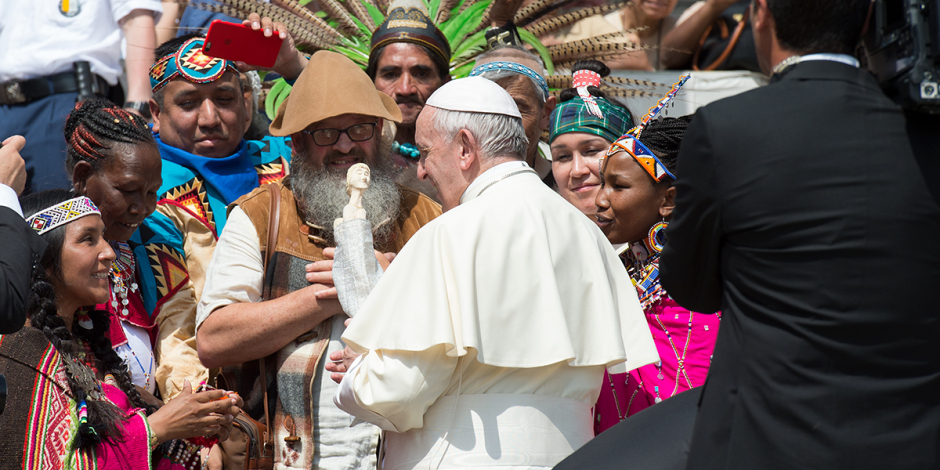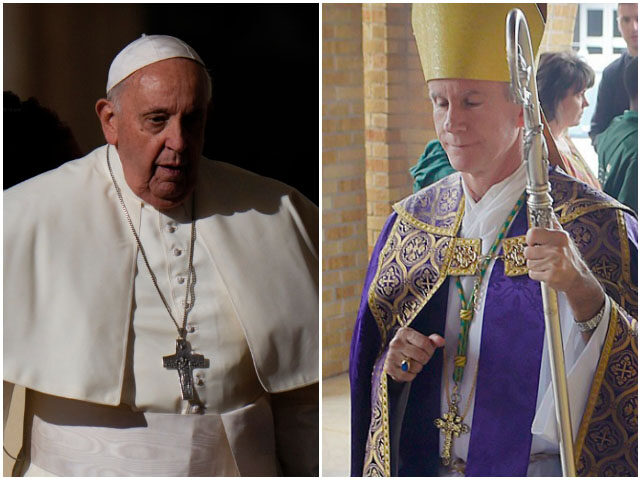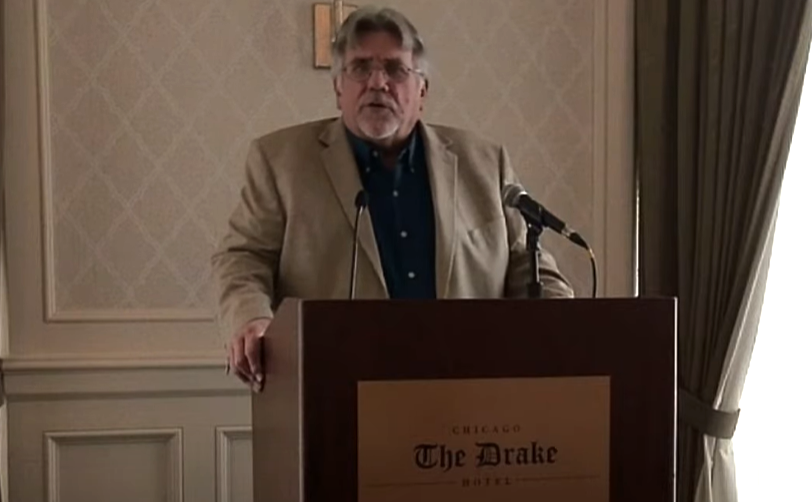Fr. Brian Mullady: How to Understand the Death Penalty and Development of Doctrine
June 25, 2019Our Lady of Good Success Speaks To Us Today, by Jonathan B. Coe
June 25, 2019
By Eduardo J. Echeverria, The Catholic Thing, June 25, 2019
 The just-released Instrumentum Laboris for the upcoming Synod, “Amazonia, New Paths for the Church and for an Integral Ecology,” implicitly accepts the presupposition that God willed the diversity of religions – religious pluralism. And that presupposition lies behind its faulty concept of inculturation. Acceptance of religious pluralism predisposes the authors of this document to understand inculturation as primarily the call to adapt or accommodate the totality of the Catholic faith to the Amazonian cultures (no. 94): ecclesiastically (nos. 107, 110); liturgically (nos. 124-125, 127); and doctrinally (nos. 26, 29, 33, 56, 98.b.1, 103, 110, 121).
The just-released Instrumentum Laboris for the upcoming Synod, “Amazonia, New Paths for the Church and for an Integral Ecology,” implicitly accepts the presupposition that God willed the diversity of religions – religious pluralism. And that presupposition lies behind its faulty concept of inculturation. Acceptance of religious pluralism predisposes the authors of this document to understand inculturation as primarily the call to adapt or accommodate the totality of the Catholic faith to the Amazonian cultures (no. 94): ecclesiastically (nos. 107, 110); liturgically (nos. 124-125, 127); and doctrinally (nos. 26, 29, 33, 56, 98.b.1, 103, 110, 121).
Accordingly, the Catholic faith loses its “transcendent” standpoint, its critical and hence normative distance over culture. It makes the culture, rather than Catholicism’s authoritative sources of the faith, Scripture, and Tradition, the standard of the Gospel.
Indeed, there is only once in this 65-page document (149 paragraphs) where a critical stance is suggested vis-à-vis cultural practices that go against the Gospel. (no. 144) Furthermore, faith is conceived primarily as a religious experience of God with little determinate content, as if beliefs were generated primarily through ongoing inter-religious dialogue with the culture.
Therefore, priority is given to the insertion of Catholicism in Amazonian cultures. This view at best undervalues, or at worst neglects, the critically transformationist dynamic of inculturation. (See Lumen Gentium 17; Ad Gentes 9). The document doesn’t see that inculturation includes both that insertion, but also the transformation and hence critical reception of whatever is good and true in those cultures by integrating them into Catholicism in order to bring “every thought captive” to Christ. (2 Cor 10:5)
The document has a strange, lopsided fascination with receiving whatever is good and true from these Amazonian cultures. Thus, it seriously fails to consider that the interpretation of these truths and goods in other cultures is often such that they are distorted, misinterpreted, and actually rejected. For instance, a proper regard for the order of God’s creation in this document seems indistinguishable from pantheism (“Amazon cosmovision”). This is so because the document’s authors overlook the decisive influence of sin on us, particularly on our minds, that is at the root of man’s resistance of God’s general revelation in and through the works of creation, as well as the objective moral order that bears down upon conscience.
But the main problem is that, behind this flawed concept of inculturation, lies the presupposition of religious pluralism. This is the view that God has somehow been legitimately revealed in a variety of ways in the diversity of religions, and that they are all equally true, and hence equally vehicles of salvation. This view is indistinguishable from religious relativism.
Pope Francis seemed to accept that God wills the diversity of religions in a document he co-signed with Ahmed el-Tayeb, Grand Imam of al-Azhar, during an interreligious meeting in Abu Dhabi. After much criticism, however, he seemed informally to clarify his position during the ad limina visit to Rome of the bishops of Kazakhstan and Central Asia. According to an official Vatican report, “The pope explicitly stated that Bishop Schneider could share the contents of their exchange on this point. ‘You can say that the phrase in question on the diversity of religions means the permissive will of God,’ he told the assembled bishops, who come from predominantly Muslim regions.”
Nevertheless, Pope Francis has not formally corrected the document itself, and hence confusion persists, as evident in this synod document.
The Synod document warns against the absolutizing of any creed, which the authors of this document claim results in the failure to recognize other ways in which God makes himself known, and consequently closes salvation off to others who profess different creeds. (no.39) It claims that one discovers his “identity from the encounter with the other, from the differences and coincidences that show us the inscrutability of the reality and mystery of the presence of God.” (no. 40) It warns us that “respectful listening” to the other “does not impose formulations of faith expressed with other cultural referents that do not respond to their lived reality.” (no. 120) Hence, the Synod document states, “Love lived in any religion pleases God.”
The authors of this document claim that this view does not relativize Christian convictions. Relativizing Christian truth-claims, however, is exactly what they do. They fail to raise the question not only of truth in general, but also of religious disagreement and conflicting truth claims between the religions in particular.
Truth is a property of propositions such that a proposition is true if what it asserts is, in fact, the case about objective reality. In short, truth signifies objective correspondence with reality; otherwise, that proposition is false. In this light, the Church does not hold that non-Christian religions are completely false in all the claims they make (see Nostra Aetate 2), but only in those that are logically incompatible with Christian truth claims.
Furthermore, my identity is rooted in union with Christ, in and through whom, by baptism, I have been made a new creation. (see 2 Cor 5: 17) As Gaudium et Spes 22 states, “The truth is that it is only in the mystery of the Word made flesh that the mystery of man takes on light.” The document’s authors acknowledge this absolute truth (no. 100) but undercut the Church’s ability to proclaim it. Why?
They don’t understand that what Christians believe, assert, and hold to be true must have a proper correspondence to reality. Rather, they wrongly seek to legitimize the claims of other religions by suggesting that the Christian faith’s formulations of divine truth are not only inadequate but also inexpressible. (no. 40) For them, we cannot hold that Catholicism’s claims are determinately true, and hence absolutely true. Moreover, they also espouse subjectivism, making so-called “lived reality” the touchstone that determines what is true.
The authors of the synod’s document must go back to school with the documents of Vatican II, the Catechism of the Catholic Church, and Dominus Iesus. They will find there a sure norm of faith.
© 2019 The Catholic Thing. All rights reserved. For reprint rights, write to: info@frinstitute.orgThe Catholic Thing is a forum for intelligent Catholic commentary. Opinions expressed by writers are solely their own.







